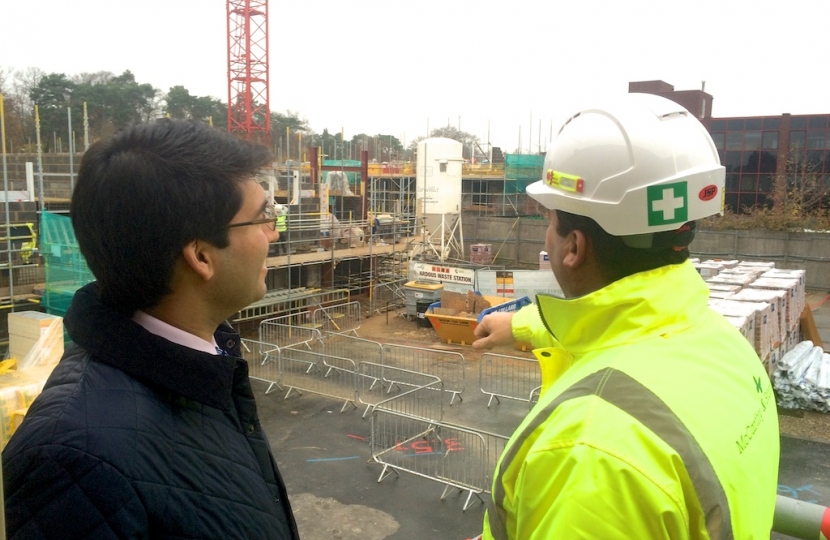
I’m pleased to have received so many emails about my last article over the last week. As I know people are reading, I may just keep writing these articles!
As I said in my article, I’ve always been in favour of brownfield regeneration and, whilst I know not everyone will agree with me, it is important to have a debate about these issues. In my view, we should want to ensure that our town and village centres are made better through regeneration, by having well-designed developments that enhance and revitalise retail and leisure facilities, as well as delivering appropriate housing.
But, in any case, it is important to be clear that I am not responsible for deciding the Local Plan – so, whether you agree with me or not, you should speak with your local Councillors outlining your views, as they have their own democratic mandate to decide planning matters.
Whether the Council ultimately decides on brownfield, greenfield or a mix, we must only have the right homes, in the right places, at the right time, with – most crucially – the right infrastructure. This is an important point. It is clear to me that infrastructure improvements are an absolute necessity for any development – and Government has a role in this part of the equation.
Whether brownfield or greenfield, infrastructure is critical to ensure that these developments not only provides homes for our friends and children, but are taken as opportunities to improve the way of life for existing residents. Whether brownfield or greenfield, development should not come before infrastructure.
I welcome the Hampshire Combined Authority proposal, specifically a ten-year Transport Investment Fund to be used to significantly improve our roads and public transport. This is a good start, but to plan our future, we must consider the past. We should be thinking about the existing infrastructure deficit also and how this can now be mitigated, so that existing residents end up with a better deal.
It is only right that infrastructure is delivered alongside any new development, rather than leaving communities hoping for improvements in the future, when our roads are already jammed and our trains are already crammed.
I have urged the Secretary of State to consider how infrastructure deficits can be remedied through devolution and to consider how communities – be it through Strategic Plans, Local Plans or Neighbourhood Plans – can secure infrastructure improvements ahead of agreeing to development, so that they are confident that infrastructure will be delivered, which has, too often, not been the case.
There is another way to fund infrastructure, of course. If regeneration is led by local government, through its ownership of the land (whether by private treaty or CPO), the profit that local government makes from the redevelopment can be invested in infrastructure or for the benefit of taxpayers. This is particularly important with brownfield sites, since sites may not be viable – after taking into account a developer’s profit – if they are also required to pay CIL/s106 at the normal level and it would not be good to see large-scale brownfield regeneration without any infrastructure improvements.
Through this vision of active local government, brownfield regeneration genuinely benefits local people, rather than shareholders of a developer, through improved infrastructure and lower Council Tax.
I should probably say that I accept, often, brownfield sites are not in common ownership and, even if they are, the landowner doesn't wish to develop them. To my mind, however, that is not a reason for brownfield to be put in the 'too difficult' pile. Rather, I believe local government has a role to outline how it wishes to comprehensively improve the existing built environment, through purchasing and redeveloping land if not already in its ownership.
This takes me to Compulsory Purchase Orders. Perhaps unusually for a Conservative, I believe that CPOs can be in the public interest and I believe they should be streamlined. Through devolution, there is a great opportunity to do this. The National Infrastructure Plan 2014 identified compulsory purchase reforms – making processes clearer, faster and fairer – as critical to bringing forward more brownfield land for development. I want to see this happen as soon as possible, giving our Councils the chance to shape our local communities for the benefit of us all.
